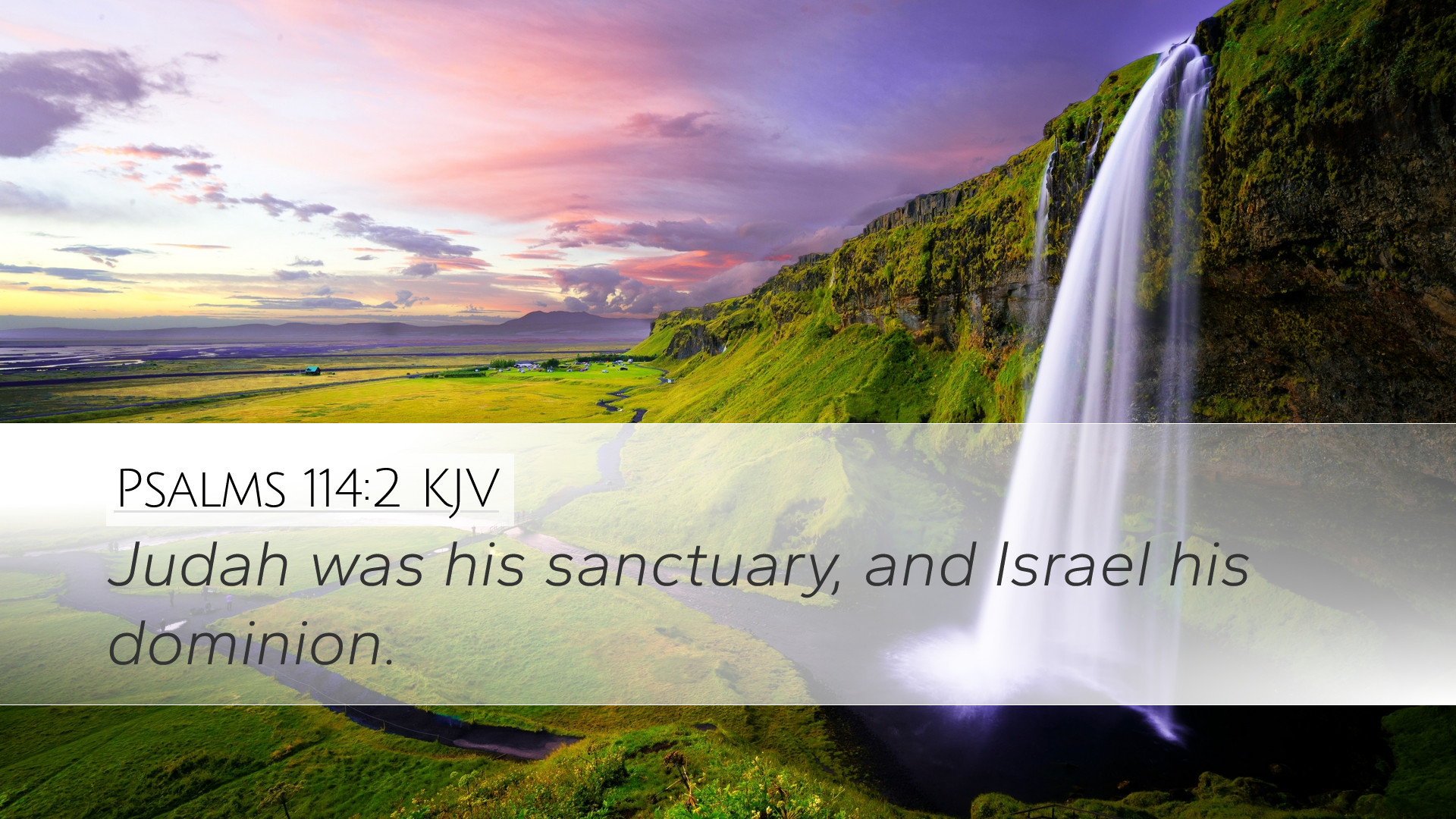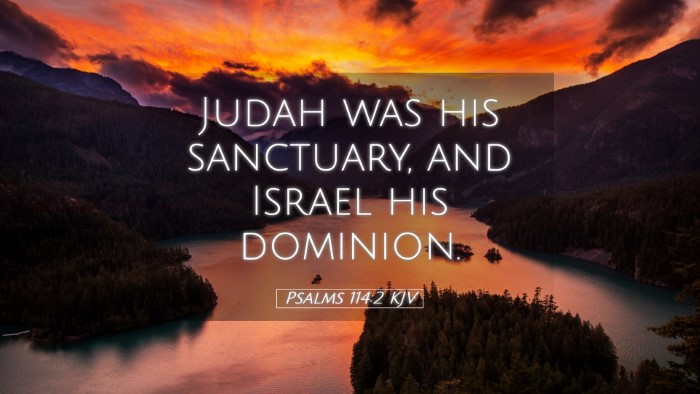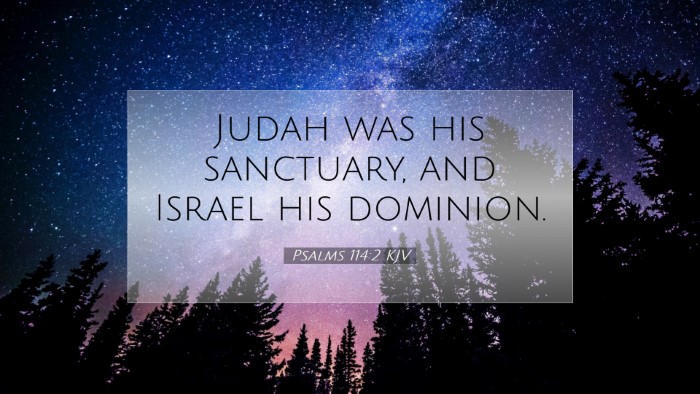Commentary on Psalms 114:2
Bible Verse: "Judah became His sanctuary, and Israel His dominion."
Introduction
Psalm 114 is a profound reflection on God's sovereignty and the special relationship He has with His people. This particular verse, Psalms 114:2, emphasizes how God views Judah and Israel as significant parts of His divine narrative. In order to understand the depth of this passage, it is essential to explore insights from public domain commentaries.
Meaning of Judah and Israel
Matthew Henry's Commentary:
Henry remarks that Judah represents the tribe that was favored with God's presence, becoming a symbol of spiritual sanctuary. As the place of the temple and worship, it signifies the heart of Israel's religious life.
Albert Barnes adds:
Judah's role as a sanctuary highlights a chosen accessibility to the divine, establishing a model for worship and fellowship with God.
Adam Clarke further elaborates:
He points out that Israel, being God's dominion, suggests that the entire nation is under God's sovereign rule, indicating divine authority and protection over His people.
Theological Implications
The verse holds deep theological significance which can encourage and challenge believers today.
- Covenantal Relationship: The choice of Judah as a sanctuary reflects God's covenant with His people, marking them as a holy nation.
- Divine Presence: The understanding that God resides with His people strengthens the notion of His immanence. The Lord does not merely watch from afar; He is actively involved in their lives.
- Call to Worship: This passage serves as an invitation for believers to recognize and respond to God's presence in their lives, fostering a worshipful attitude in their daily existence.
Historical Context
The backdrop of this psalm is essential to grasping its full meaning.
Matthew Henry notes:
This psalm was likely composed after the Exodus, recounting God's deliverance of His people from Egypt and His ongoing care for them.
The imagery used reflects the powerful and transformative acts of God in history, particularly emphasizing His role as a Deliverer.
Albert Barnes observes:
God’s historical actions served to affirm His promise to Israel, reinforcing their identity as His chosen people.
Reflection on Verses 1 and 3
To fully appreciate Psalms 114:2, one should examine its surrounding verses.
Verse 1: "When Israel went out of Egypt, the house of Jacob from a people of strange language."
This introduction highlights the significance of Israel's exodus; it marks a pivotal moment of liberation and identity formation.
Henry states:
The going out of Israel is a powerful illustration of God's might and providential care.
Verse 3: "The sea saw it and fled: Jordan was driven back."
This imagery reinforces God's dominion over nature, showcasing His authority as creator and sustainer. Henry points out that these events reflect Israel's victory through God's empowerment.
Application for Believers
Spiritual Encouragement: For pastors and theologians, this verse is a reminder that God sanctifies His people and reigns over them.
Clarke suggests:
Understanding Judah as God’s sanctuary should inspire congregations to cultivate spaces of worship and community that reflect God’s grace.
Barnes emphasizes:
Knowing our identity as part of God’s dominion provides both assurance and responsibility to live according to His scriptural guidelines.
Challenge to Personal Faith: As individuals reflect on God’s presence in their lives, they are called to assess how they embody the characteristics of a sanctuary.
Clarke specifies:
The believer’s life should be a testament to God’s reign, a space where divine attributes such as love, holiness, and mercy are evident.
Conclusion
Psalm 114:2 serves as a profound encouragement to recognize our identity in God. Through insights gathered from Matthew Henry, Albert Barnes, and Adam Clarke, it becomes clear that this verse is not merely historical or theological, but a call to living a life that honors God, acknowledging His presence as our sanctuary. Judah’s significant role as God’s dwelling reminds us of the importance of sacredness in our worship and daily lives.


